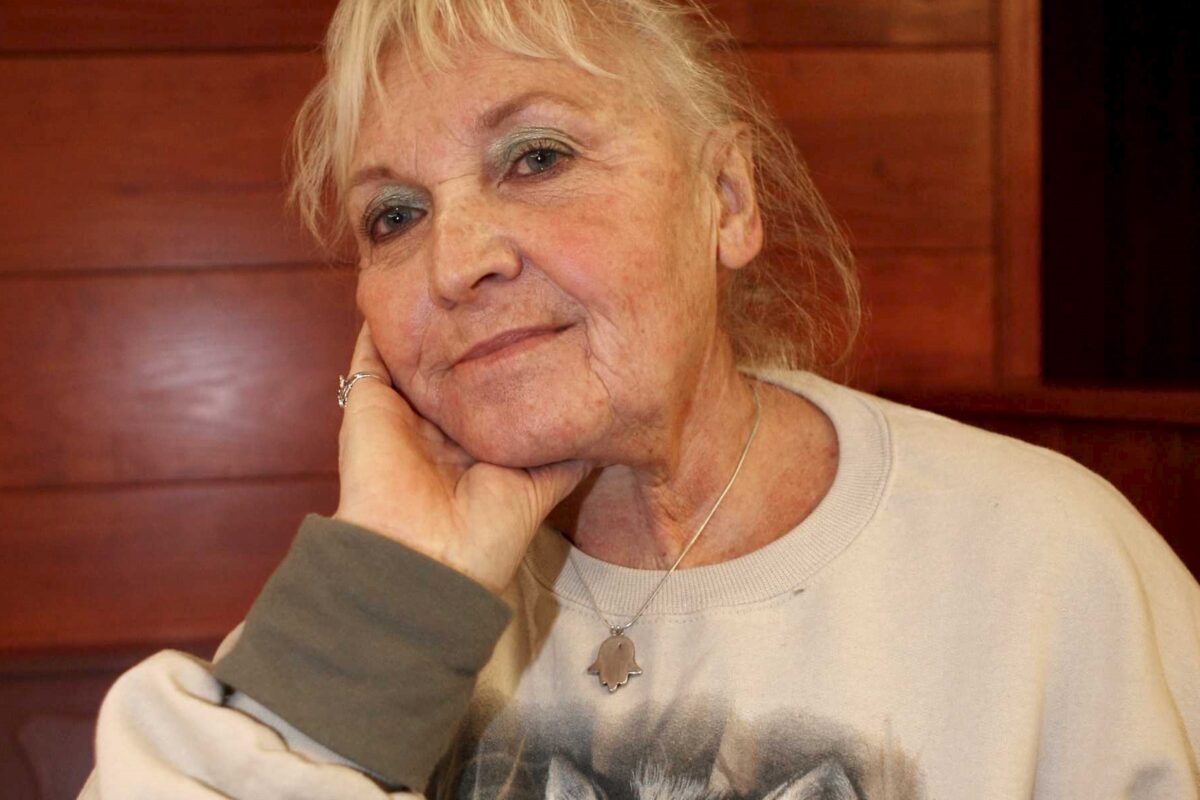Misha Defonseca’s Holocaust survival story is incredible, beyond belief.
At the age of seven, in Nazi-occupied Belgium, she trudged through a forest and kept herself alive by joining a pack of wolves that protected and provided her with scraps of food.
In 1997, Defonseca’s memoirs, Misha: A Memoire of the Holocaust Years, was published and became a bestseller in Europe. An eponymous 2007 French-language movie, Survivre Avec les Loups, featuring reenactments of her astonishing adventure, enhanced her image as an extraordinary survivor.
Defonseca’s fame grew as she delivered speeches and granted media interviews to publicize the book and the feature film. By any yardstick, she could be considered a heroine. But due to a chain of unforeseen circumstances, Defonseca’s tale unravelled, crumbling before her eyes and legion of admirers.
Sam Hobkinson explores this unusual saga in his riveting film, Misha and the Wolves, which will be screened online by the Canadian International Documentary Festival (Hot Docs) from April 29 to May 9.

By her account, she was placed in the home of an elderly Catholic couple and given a new name, Monique De Wael, after her Jewish parents in Brussels were deported by the Nazis. Unhappy with her living arrangement, she left their home after discovering that her biological parents had been sent to Germany.
Determined to find them, she set out on a trek through the countryside, staying away from towns and villages so as to remain undetected by the Germans.
The notion that a seven-year-old girl was capable of undertaking such a daunting challenge strains credulity. Defonseca herself can hardly believe it. “I was absolutely naive when I think about it,” she says.
Defonseca claims she felt at ease in this “wonderful” and “peaceful” world of trees, flowers and birds. As she continued walking, she saw a wolf and left it food. The wolf followed her. Spotting a pack of wolves, she stayed close to them. Sensing she was a friend, they gave her leftovers from prey they had devoured.
After the war, Defonseca settled in the United States. One evening, on Holocaust Memorial Day, she told her story to an audience at a synagogue in Millis, Massachusetts. Jane Daniel, a publisher, got wind of it and invited her to write a book about her experiences. Defonseca’s memoirs struck a chord with readers and sold extremely well, particularly in France.

Strangely enough, against Daniel’s advice, she declined an opportunity to appear on Oprah Winfrey’s television show. Normally, authors jump at the chance to be interviewed by Oprah because it boosts sales tremendously.
Still stranger, Defonseca sued Daniel, claiming she had never received royalties. The case went to trial and Defonseca won an astounding $22 million settlement, all but bankrupting Daniel.
Daniel hired a Belgian researcher and Holocaust survivor, Evelyne Haendel, to investigate whether Defonseca’s story was completely kosher.
It was not.
“I caught her in a lie,” says Daniel.
In rapid succession, the film uncovers the tissue of lies that Defonseca fabricated to present herself as a survivor of the Holocaust and to conceal the role her father played during the German occupation of Belgium. The revelations are breathtaking.
“I created this monster,” Daniel admits. “Everyone was seduced by her.”
“Everyone felt betrayed,” says one of Defonseca’s ex-friends.
As for Haendel, she feels both pity and revulsion for Defonseca, a fraudster whose sand castle was washed away by the tides.
